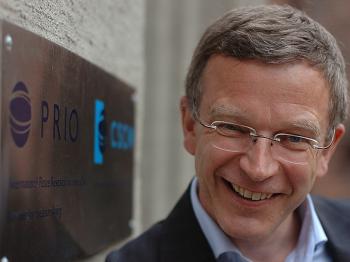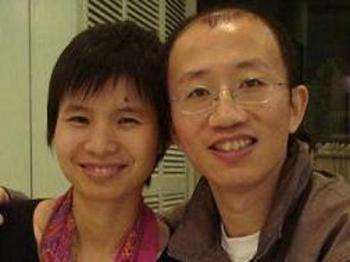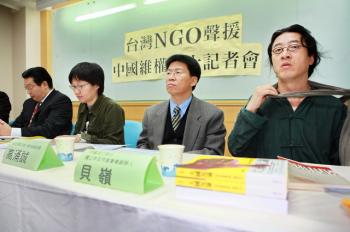Only specific segments of the public are permitted to make suggestions for a candidate. The individuals are five members of the Norwegian Nobel Prize Committee, former recipients, members of the government as well as faculty from the social sciences, history, philosophy, law, and theology, in addition to the heads of research institutions. Nominations have to be in by February 1 of each year the prize will be awarded and should be kept confidential, though this might not always be so. The final decision comes from the five-member Nobel Prize Committee, which the Norwegian parliament selects for a six-year tenure.
No one at the Nobel Institute would publicize speculations over a probable winner, and no one takes sides after the award is presented, which sometimes leads to lively discussion. The decision is final. As mentioned above, media representatives contact professor Toenneson each year, to question him about probabilities for the chances for the year’s winner. He publishes a list of probable candidates on his Web site who, according to his analysis, might have the best chances.
This year’s list looks like this:
1. Gao Zhisheng and Hu Jia, China
2. Thich Quang Do, Vietnam (Buddhist monk)
3. Lidia Yusupova, Russia, Human Rights Activist
4. Iftikhar Muhammad Chaudhry, Pakistan, former Chief Justice
5. Coalition against Cluster Bombs
6. FAO (Food and Agriculture Association) or the WFP (World Food Program) at the United Nations
Though Professor Toenneson frequently misses the mark to predict the winner by his own admission, he was able to predict a winner occasionally, as he did in 2007, for Al Gore and the World Climate Forum. But his list does not include a candidate he himself had nominated, to satisfy the Nobel Institute’s wish for secrecy and to avoid minimizing the chances for his candidate’s nomination.
The following is an interview conducted with Professor Toenneson.
ET: You wrote in an article that Hu Jia is favored to win the Nobel Peace Prize. What is the reason for that?
Stein Tonnesson (ST): This question has two elements: The first is why will it be a Chinese dissident or human rights defender this year? My reasons for thinking so is that it is 60 years since the Universal Declaration of Human Rights and the signing of that declaration happened on the tenth of December, 1948. And the tenth of December is the day the Nobel Peace Prize is also awarded in Oslo every year. So it would be very fitting to honor someone working for human rights this year.
And when I thought about whom would the best human rights candidate be, I thought about Human Rights Watch as an organization—Amnesty International was awarded before. But I know that the Committee prefers to give the prize to individuals because it profiles the prize better.
And I thought about the various judges who have been defending the independence of the court system from governments, from executive powers who have tread into their territory. And this has happened in many countries, so perhaps the prize this year would honor someone who is defending the independence of the court. And then I thought about the Chief Justice of Pakistan.
And then I also thought about possible dissidents, because you know in 1935 where the prize went to Carl von Ossietzky. That was a very courageous decision by the Committee, based on the campaign, because he was in jail in Nazi Germany. Another prize of that kind was the one to Albert Luthuli in 1960, and then you have Sakharov in 1975, which was a support to a dissident in the Soviet Union. There is a long tradition of giving the prize to someone who opposes an authoritarian government, or is a victim of oppression in an authoritative government.
Perhaps the most well-known of all those prizes today is the one to Aung San Suu Kyi in 1991. She of course has suffered tremendously both before and after, but has been the symbol of the Burmese people’s struggle against an oppressive regime.
I could also mention the one in 2003,
Another reason for pointing out Hu Jia: China really is in line for the prize, because there is only one Chinese who has ever won the Nobel Peace Prize, and that is the Dalai Lama, in 1989, and he is not even living in China.
So there has been much talk through the years about this imbalance of the prize, because this is meant to be a global prize, in the first decades it went mainly to Europeans and North Americans. But the Committee, since the 1970s and ’80s, has done its best to widen its perspective and globalize the prize by awarding it to Africans, Latin Americans, and Asians, but there is only one single Chinese.
What I have thought is that those who live in exile, like Wei Jingshen … and many of the veterans from 1989, that they have less chance, that they’re less likely to be Nobel Peace Prize laureates because they are after all living in the relative security of exile. If one gives a prize like this to a dissident, one will prefer, normally, someone who is holding up at home, either in prison or in house arrest or under some kind of surveillance. There’s something even more noble about the fight then. Therefore, I thought that Hu Jia would be likely.
ET: What effect does this prize have?
ST: The Nobel Committee does not want the prize to just be an award for something you have done. They want the prize to actually have an effect in making the world more peaceful. And peaceful does not mean just less war and fewer weapons, but it also means a world that respects human rights and is more just. For this reason, the committee tries to award the prize normally to someone who is not too old, but is directly engaged in trying to improve things.
Many of the laureates found that after they got the prize, their cause became much more well-known internationally than before. It’s very clear that Aung San Suu Kyi has gained from the prize being respected by the whole world as the legitimate leader of the Burmese nation. It’s also quite clear that the East Timorese prize to [Jose] Ramos-Horta and [Carlos Filipe Ximenes] Belo in 1996 contributed to draw the world’s attention to East Timor, which had been considered by most of the world as part of Indonesia for the time since the occupation in the 1970s. And then afterwards, East Timor has become an independent nation-state.
In the case when the prize is given to dissidents, I assume that the cost for the government in question of torturing or harassing or punishing the person who gets it, will increase. That cost will increase. And some governments defy that, and other governments will try not to be too harsh with the winner of the prize because they know this will lead to strong international reactions. If you first look at Ossietzky, he died in prison, but Hitler did not outright kill him. I think he lived for three years after he got the prize. Sakharov, I don’t know the exact effect that the prize had on him, but I believe he became very well known, and after the demise of the Communist regime, he became a very celebrated person.
Aung San Suu Kyi, she has been an in-and-out prisoner in house arrest and watched closely over, but she has not been treated as harshly as other people; she has been mostly able to stay in her house, and she has also managed to keep in touch with the outside world through the various kinds of media.
So the question then is, how will the Chinese government react, if the prize is given to Gao Zhisheng or to Hu Jia. It’s possible that China will protest strongly and say that ‘this is interference in our affairs and we have every right to treat people who have broken our laws,’ and things like that, and then the prize will not have any immediate effect for the person who gets the prize, but if China does that, China contributes even further to decreasing the respect that is enjoys both at home and abroad. The other possibility is that China will then treat the person in question better than others in order to deflate criticism.
We have seen several times that China has linked human rights issues not openly, but more indirectly, to its relations with the United States. So on occasions where China has needed the United State’s support, for instance, for membership in the WTO, there have been cases where imprisoned people are allowed to leave China and go into exile. That would be the easy way out for China, and it also weakens the person who does it.
If the prize is given to a Chinese dissident, that dissident would become much better known in China.
ET: Would Beijing be successful in exerting pressure to the Committee or with the Norwegian government and thus influence the decision?
ST: Absolutely not. If China tries to put pressure directly on the Committee or on the Nobel Institute, that would be very badly received, and it would certainly not have the effect that China was hoping for. I also don’t think China would do that, China would not contact members of the Nobel Committee or the director of the Nobel Institute, and try to influence them, because China very well knows that that wouldn’t work.
What China has been doing in the past, and might be doing again, is to warn the public against it, like the foreign minister did now. That is also unlikely to have any effect. And then it would be possible for China to contact the Norwegian ambassador in Beijing or the Chinese ambassador here to contact the Norwegian government. If they did that, they would only be told that this is not government business, this is something that the Nobel Committee does independently and on its own.
The prime minister and the foreign minister of Norway are informed only one hour before, very shortly before, so they can prepare if the prize should have any diplomatic implications for Norway.
Background Information About the Two Chinese Nobel Candidates
Hu Jia and Gao Zhisheng are Chinese dissidents who were arrested prior to the Olympics to prevent them from speaking out during the games.
Gao Zhisheng, born in 1964, is a practicing Christian who was raised in abject poverty and became one of China’s most successful personal injury lawyers, championing the rights of the disenfranchised and oppressed. He protested the ruthless persecution of Falun Gong with three open letters to the regime, which led to the revoking of his license to practice law, the closure of his office, and got him held under house arrest. He went on a protest hunger strike in which thousands of sympathizers around the world joined. Following numerous arrests and a trial from which he was excluded from and that pronounced a three year prison sentence, he was seized on September 22, 2007 and has since not been seen. According to an inside source, he was ruthlessly tortured.
Like Gao Zhisheng, Hu Jia, born in 1973, had also intervened for condemned, blind civil rights advocate and anti-sterilization advocate Chen Guangcheng. Hu is one of Beijing’s best-known dissidents, whose interests range from environmental concerns to the AIDS crisis, and he has criticized the regime for their mistreatment of Gao and other activists. He addressed the European Parliament via telephone in November 2007. That was followed by his arrest and conviction of “Inciting Subversion of State Powers,” for which he was sentenced to three and a half years in prison. His wife and their child are held under strict house arrest.
Background Information on Stein Toenneson:
Stein Toenneson, Norwegian peace researcher and head of the Institute for Peace Research in Oslo (PRIO), is a sought-after man. Media from around the world question the professor each year on who might have the best chances to be awarded the prestigious Peace Prize. In the aftermath of this year’s Olympics, the professor holds the best chances for Chinese dissidents Gao Zhisheng and Hu Jia.







Friends Read Free